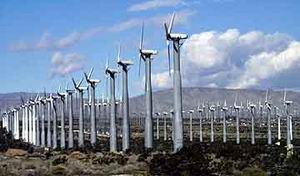In triumphant headlines, we all learned last week that the Province of Alberta is about to become debt-free. This evoked a touch of envy in other provinces, and some pundits used the news to browbeat more profligate governments. Others shrugged and ascribed Alberta’s good fortune to all that lucky oil wealth. This view is especially popular among Manitoba’s chattering classes, and is used to push the case for more equalization subsidies, the “no strings attached” federal transfers that account for an unhealthy 19% of the provincial budget. But stop the presses. With a different policy mix, Manitoba too could be debt-free.
Booming oil prices in Alberta are only part of its success story. Between 1993 and 1996, it moved aggressively to slim down its public sector and chopped program spending by 22%. It also started paying down large parts of its debt, whose service costs ran at $1.7 billion at their 1994 peak. As a consequence, even though oil prices ranged from 9 to 13 dollars a barrel in 1998-99, Alberta rang up a billion-dollar surplus.
Aggressive debt repayment took the surplus down to $363 million last year, with the difference applied to a combination of more services and lower taxes. Its provincial income tax rate is a flat 10%, compared to a plainly uncompetitive 17.4% in Manitoba. The low rate attracted capital and jobs, and generated the fastest rate of economic growth. That left places like Manitoba, with its obsolete, high-tax, high-subsidy economic model, in the dust.
Today Albertans enjoy the highest living standard in North America.
In Canada, news on the debt front has been generally good. The feds should continue to post surpluses, thereby freeing up money spent on debt servicing for other things. Only a few provinces are adding to their debt through annual budget deficits. Manitoba has not been a slouch in this regard. With no oil revenue, it has managed to lower its operating debt – ignoring Manitoba Hydro – from 27% to 16% of the economy during the last decade.
Which brings us to the provocative question: could Manitoba be debt-free?
A nifty little paper entitled Is there a Debt Crisis in Manitoba? contains a strong clue. Written in 1994 by two University of Winnipeg economists, Michael Bennaroch and Hugh Grant, it suggests that Manitoba’s policy of keeping electricity prices at cost results in “a political process designed to redistribute income” to big capital. They pointed out that the value of electricity as a substitute energy resource has increased while oil prices rose. Hydro projects built to be economically viable in a climate of $5 per barrel prices generate windfall profits when oil is running at $40 a barrel.
Unlike Alberta which is capturing the full value of its oil resource, Manitoba essentially wastes its valuable hydroelectricity by underpricing it. That policy effectively provides huge subsidies for industrial and commercial power users. The value of the subsidy they calculated back in 1994 was $600 million dollars a year.
Take that figure, string it out over the past few decades and compound its value. It is not hard to see that Manitoba should be sitting on a giant surplus instead of its present debt. When you adjust that figure to reflect the fact that we have higher energy prices today, the huge opportunity cost becomes even more glaring.
Tom Adams of Energy Probe, a Toronto-based energy think tank, calculates that Manitoba’s “power at cost” policy is squandering about $900 million a year. He arrived at that estimate by taking Manitoba Hydro’s industrial rate for large customers of 2.934 cents per kilowatt hour, deducting operating costs for transmission, billing, metering and other overheads, of 1.4 cents, to end up with a “commodity” cost of power of about 1.5 cents. The price in Ontario last year was 6.2 cents per kwh, or net 4.8 cents more than Manitoba’s price. Applying this huge gap to Manitoba Hydro’s total sales inside the province of 19 Terawatts produces the “missing profits” figure of about $900 million per year.
If Alberta were to price its oil resource like Manitoba does its electricity, it would be charging about $8 a barrel. It would also have higher taxes and much lower living standards. From an environmental perspective, it would waste a lot of oil with much higher consumption a natural consequence of artificially lower prices. It would still have a large debt in a much smaller economy and it would most certainly be slurping away at the equalization trough.
Which brings us back to poor,“have- not” Manitoba. Yes, we are among the largest wastrels of electricity in the world. We also have unnaturally high tax rates and growth rates below what we should, both propped up from the outside by a dependency inducing national equalization program. Moreover, windpower, ethanol and other “green” energy industries have no viability when electricity prices are pegged so low.
With a different, more modern policy mix, Manitoba could be the richest place in Canada. And, like Alberta, debt-free.



